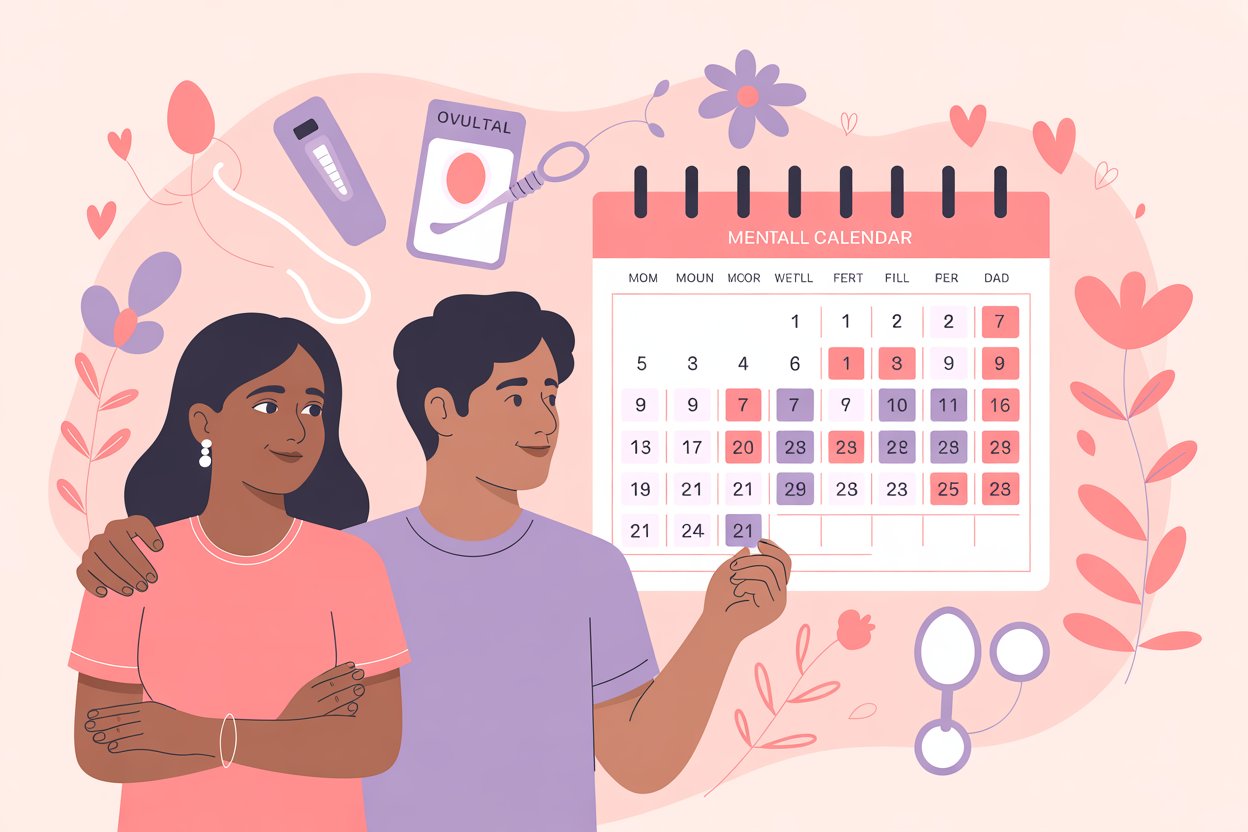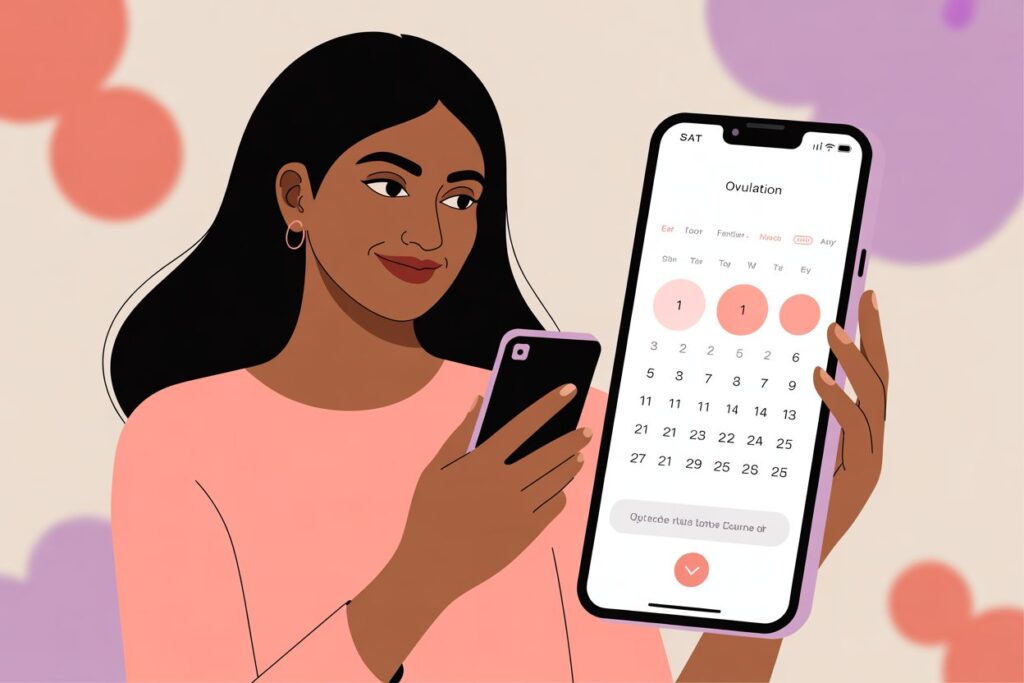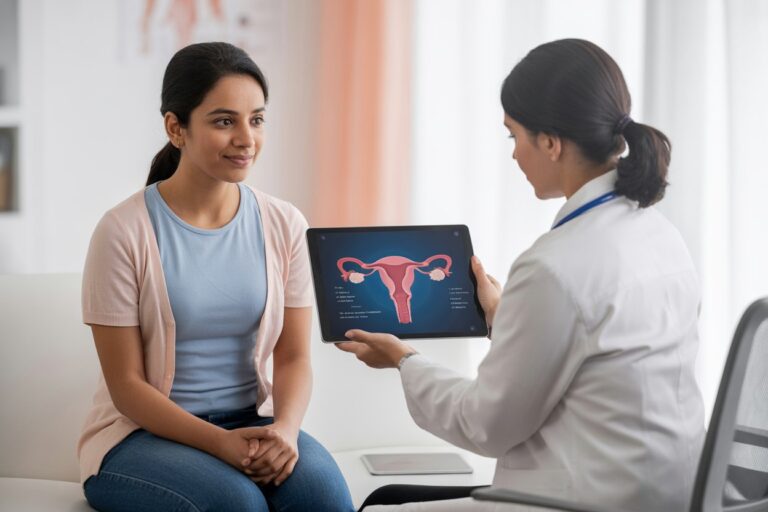Starting the journey to parenthood is exciting, but for many couples, it also comes with questions, doubts, and a fair share of stress. One of the most important aspects of trying to conceive is understanding how your body works—especially when it comes to ovulation and the fertility window. If you’ve been wondering how to maximize your chances of conceiving, learning to identify your fertile days and supporting your body with healthy habits can make a real difference.
In this guide, we’ll explore what ovulation really means, how to track it, why timing is everything, and practical steps you can take to improve your chances of pregnancy naturally.
What Is Ovulation and Why Does It Matter?
Ovulation is the process when a mature egg is released from the ovary. This egg then travels down the fallopian tube, where it may meet sperm for fertilisation. Since a woman releases just one egg per cycle (sometimes two), this event becomes the most important window for conception.
The tricky part is that the egg survives only about 12–24 hours after release. However, sperm can live inside the female reproductive system for up to 5 days. This means your fertility window is not limited to the day of ovulation but usually spans about 5–6 days each cycle.
Understanding when you ovulate is key to how to maximize your chances of conceiving. If intercourse happens during this fertile window, your chances of pregnancy increase significantly compared to any other time in the cycle.
The Fertility Window Explained
The fertility window is the short timeframe in your cycle when pregnancy is most likely. Generally, it covers the five days leading up to ovulation and the day of ovulation itself. For example:
- Day of ovulation: Highest chance of conception.
- 2 days before ovulation: Very high chance.
- 3–5 days before ovulation: Moderate to good chance.
- After ovulation: Chances drop rapidly.
This is why timing intercourse correctly is one of the most important steps for couples trying to conceive. Missing the window can mean waiting another month, which is why tracking your cycle becomes so important.
How to Track Ovulation
If you’re serious about understanding how to maximize your chances of conceiving, you’ll want to identify your fertile days accurately. Every woman’s cycle is different, so relying only on calendar predictions may not always be enough. Here are some reliable methods:
1. Calendar Method
If you have a regular cycle (say 28 days), ovulation usually happens around day 14. Marking cycles for a few months can help you estimate your fertile window. However, this method may not be accurate for women with irregular cycles.
2. Basal Body Temperature (BBT)
Your body temperature slightly rises (about 0.5°C) after ovulation. By recording your BBT daily before getting out of bed, you can spot patterns. While it won’t predict ovulation before it happens, it helps confirm it and improves your cycle awareness.
3. Cervical Mucus Monitoring
Your body gives natural signals. Around ovulation, cervical mucus becomes clear, slippery, and stretchy—similar to egg whites. This indicates high fertility.
4. Ovulation Predictor Kits (OPKs)
These test strips detect the surge in luteinising hormone (LH) that triggers ovulation. They can predict ovulation about 24–36 hours in advance, giving you a heads-up for your most fertile days.
5. Hugmumma period and fertility tracker
Technology makes life easier. Hugmumma digital fertility tracker combine multiple methods for more accuracy.
Best Timing for Intercourse
Once you’ve tracked your fertile window, the next step is timing intercourse. Experts recommend having intercourse every 2–3 days during your cycle to keep sperm quality healthy. However, focusing particularly on the fertile window gives the best results.
- Start trying about 3–4 days before expected ovulation.
- Aim for intercourse every alternate day during this period.
- The day before and the day of ovulation are considered peak fertility days.
This approach helps ensure sperm is already present when the egg is released, maximising the likelihood of fertilisation.
Lifestyle Factors That Influence Fertility
Knowing your ovulation day is only part of the equation. Your overall health plays a big role in how to maximize your chances of conceiving. Simple lifestyle changes can improve fertility in both men and women.
1. Nutrition Matters
Eating a balanced diet with whole grains, fruits, vegetables, lean proteins, and healthy fats supports hormone balance. Foods rich in zinc, folate, iron, and antioxidants are especially beneficial. Avoid excess caffeine, processed foods, and trans fats, which may interfere with fertility.
2. Maintain a Healthy Weight
Both being underweight and overweight can affect ovulation and sperm quality. Aim for a healthy BMI, but avoid extreme diets. Slow, sustainable changes are best.
3. Exercise Smartly
Moderate exercise helps regulate hormones and reduces stress. However, excessive intense workouts may disrupt ovulation. Activities like yoga, walking, or swimming are great choices.
4. Manage Stress
Stress doesn’t directly prevent conception, but it can affect hormone balance and ovulation. Meditation, deep breathing, journaling, or simply taking time for hobbies can lower stress levels.
5. Avoid Alcohol and Smoking
Both alcohol and smoking can negatively impact fertility in men and women. Reducing or quitting these habits can improve your chances of conceiving.
6. Sleep Well
Good sleep helps regulate hormones, especially those linked to ovulation and sperm health. Aim for 7–8 hours of quality sleep daily.
When to Seek Medical Advice
Sometimes, despite doing everything right, conception takes longer. This can be frustrating but is also common. Most healthy couples conceive within 6–12 months of trying.
You should consider consulting a doctor if:
- You’re under 35 and have been trying for over a year without success.
- You’re over 35 and have been trying for 6 months or more.
- You have irregular or absent periods.
- You have a history of conditions like PCOS, endometriosis, or thyroid disorders.
- Your partner has known fertility issues.
Fertility specialists can run tests, provide guidance, and suggest treatments if needed. Early support can make a big difference.
Emotional Side of TTC
Trying to conceive is not just a physical journey—it’s deeply emotional. The waiting, month after month, can sometimes feel overwhelming. Couples may experience disappointment, stress, or even tension in their relationship.
Remember that intimacy should not feel like a chore. Keeping romance alive, supporting each other, and finding joy in the process are just as important as tracking ovulation. Seeking emotional support through friends, family, or counseling can also help you stay positive.
Final Thoughts
Understanding ovulation and your fertility window gives you the power to work with your body rather than against it. By timing intercourse, supporting your body with healthy habits, and staying patient, you can significantly improve your chances.
If you’re wondering how to maximize your chances of conceiving, the answer lies in a mix of science, self-care, and patience. Track your cycles, eat well, manage stress, and remember that every couple’s journey is unique. With awareness, effort, and the right support, your dream of parenthood can be closer than you think.








